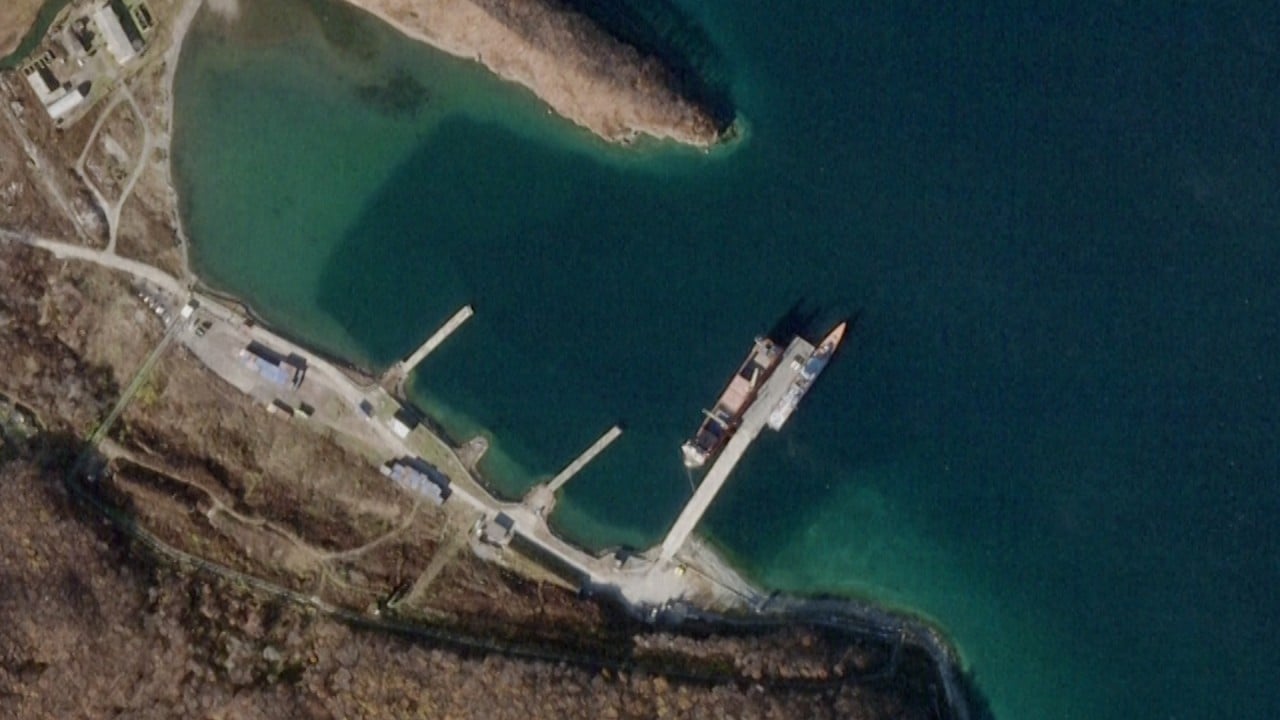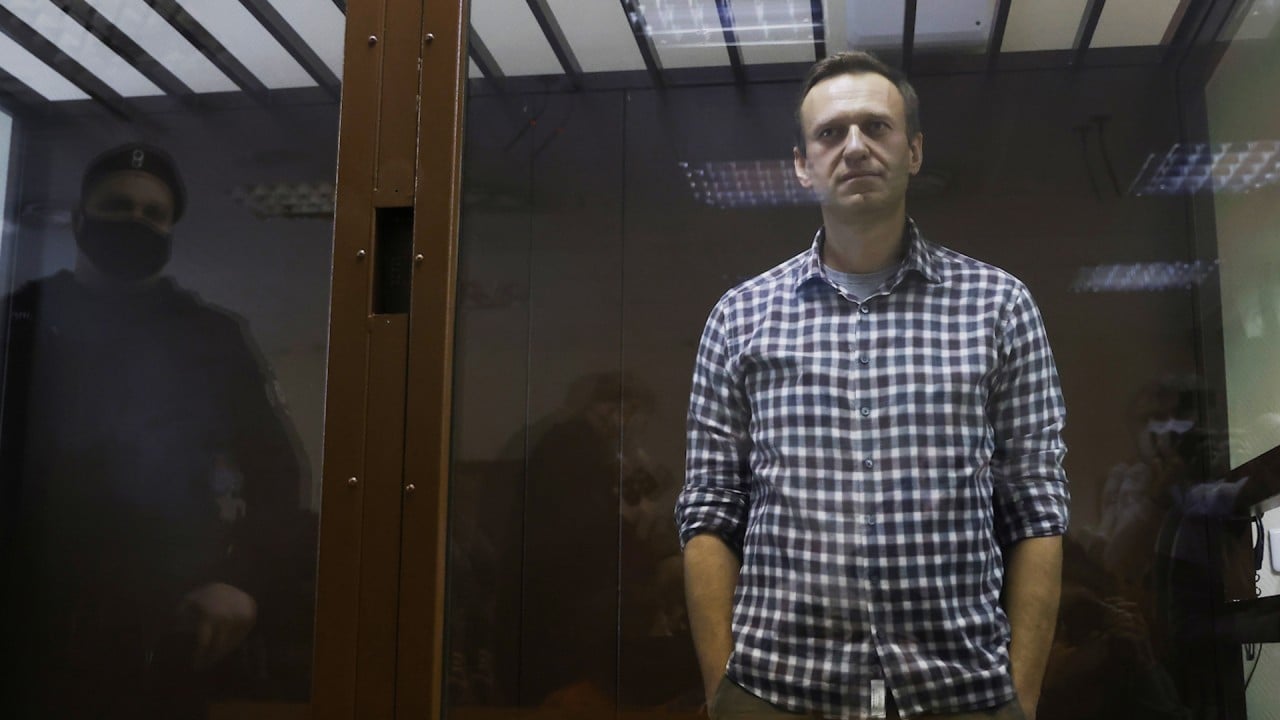
China and Russia test ‘hack-proof’ quantum communication link for Brics countries
- Scientists in Russia and China establish quantum communication encrypted with the help of secure keys transmitted by Mozi satellite
- ‘All countries that are interested in technological leadership know that without quantum technology they won’t succeed’: quantum researcher
The scientists were able to span 3,800km (2,360 miles) between a ground station close to Moscow and another near Urumqi in China’s western Xinjiang region to send two encoded images secured by quantum keys.
The first “full cycle” quantum communication test between the two countries was successfully conducted last year, said Alexey Fedorov, of Russia’s National University of Science and Technology (MISIS) and the Russian Quantum Centre (RQC), Russia’s leading institution in charge of creating a quantum computer, on December 14.
Quantum communication – a form of quantum physics-based information transfer that uses cryptography to encode data in single photons – offers a way to transfer information that hackers cannot eavesdrop on, according to the paper.
Encrypted data is transferred in the form of ones and zeros along with a quantum key that is used to decrypt the data.
Quantum keys, or strings of random bits, “are secret parameters that we use to encode useful information”, making it inaccessible to unauthorised individuals, Fedorov said.
Using quantum key distribution can allow for security that was “guaranteed by the law of physics”, the researchers wrote in their paper.
While there has been major progress in the development of quantum key distribution, ground-based transfer at reasonable speeds using optical fibre cables is limited to around 1,000km because of a loss of photons over long distances, according to the paper.
To overcome this hurdle, China launched Mozi, the world’s first quantum communication satellite in 2016, to begin long-distance quantum transmission.
Using the satellite, China has been able to develop a national quantum network of ground stations spanning thousands of kilometres.
In 2020, the Russian team began working with the Mozi team, who helped them set up systems to begin conducting experiments with the satellite, Fedorov said.
A ground station was set up at the Zvenigorod observatory just outside Moscow, equipped with telescopes and cameras to track the satellite. Various experiments were conducted between the Zvenigorod ground station and China’s Nanshan ground station near Urumqi, the paper said.
Sanctions lead to scientific collaboration between Russia and China
On March 1 last year, a full quantum communication experiment was conducted between the two stations.
A secret key was distributed between Zvenigorod and Mozi, which orbited between 600km and 1,100km above the ground station. Once the Chinese side received the shared key from the satellite, a secret key was established between two stations nearly 4,000km apart, the paper said.
Two coded messages were transferred between the teams that were decrypted with the help of two keys – a quote from Chinese philosopher Mozi and an equation from the late Soviet physicist Lev Landau – according to the team.
It was the first successful full-cycle quantum communication experiment between China and Russia. Fedorov said a secure quantum call had been established in 2017 between Austria and China using Mozi.
The paper released by the Russian team in October highlighted a major aspect of their research with Mozi and quantum key distribution.
To transfer quantum keys between long-distance ground stations, both stations must have detectors that pick up signals from a satellite. These devices “are not always working ideally”, Fedorov said.
Slight differences in the detectors could leave the system open to potential security attacks, he said.
The researchers said this detection efficiency mismatch was not taken into account in the decoy state quantum protocol – which is the most widely used quantum key distribution protocol. To further improve the security of the system, the team modified the security analysis protocol to take the mismatch into account.
“Our results pave the way to the considerations of realistic imperfection of the QKD [quantum key distribution] systems, which are important in the context of their practical security,” the paper said.
We live in an information age, where a lot of what we do “is tied to protected information”, making quantum keys a “useful tool” to protect strategic and sensitive information, Fedorov said.
While quantum communications networks could have many uses, Fedorov said that for now quantum systems would ideally be suited to scientific research, with more research needed before the technology could be commercialised.
He said the finance sector was interested in quantum technology, with banks storing “a massive amount of critical, important information”.
In July, Russian President Vladimir Putin told the Future Technologies Forum in Moscow he planned to develop Russia into an economy where quantum technology had an important role in digital infrastructure.
“Technically, it’s absolutely possible” to build a quantum communication network between the Brics nations, Fedorov said.
But while there was “scientific, technical and commercial potential for these kinds of systems”, a unifying project was needed to push development forward, he said.
There would also need to be shared standards between nations regarding the exchange of data and safety measures.
Fedorov said that to commercialise quantum networks, development was heading towards expanding infrastructure through launching mini quantum satellites and building ground stations, along with forging protocols to exchange information.
In June, Russia released its own quantum microsatellite prototype, and had begun experimenting with the aim of launching its own quantum satellite, according to Fedorov.
A new frontier: China targets ‘industries of the future’ to drive 2024 growth
The team hoped to develop its own quantum technology to become a resource to help other nations conduct quantum experiments as China had helped the Russians, he said.
Beyond quantum communication, countries across the world are researching various technologies, including quantum computing, which the Russian team would soon use to solve minor tasks.
“All countries that are interested in technological leadership know that without quantum technology they won’t succeed,” Fedorov said.



